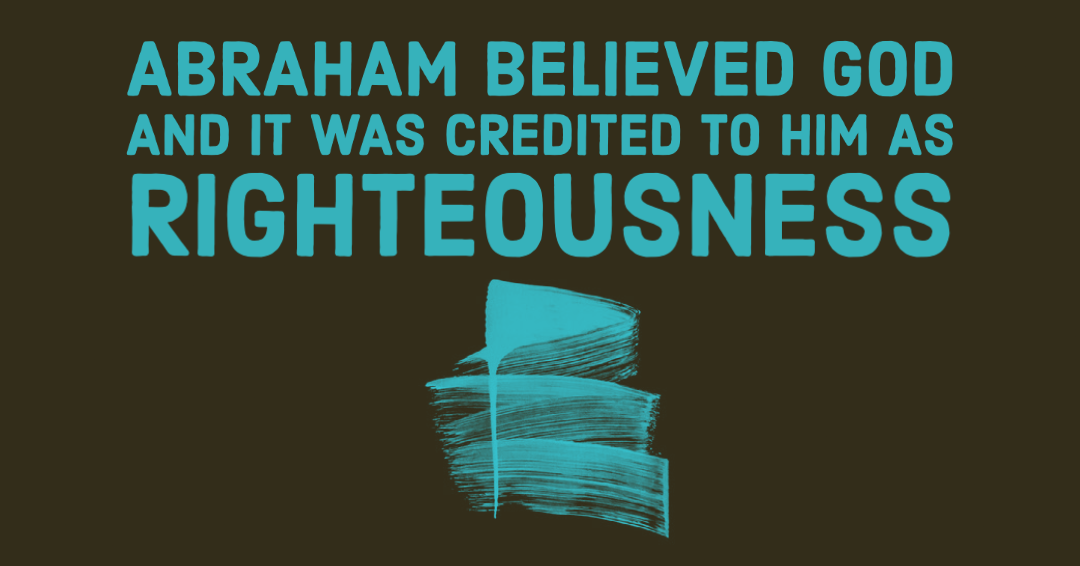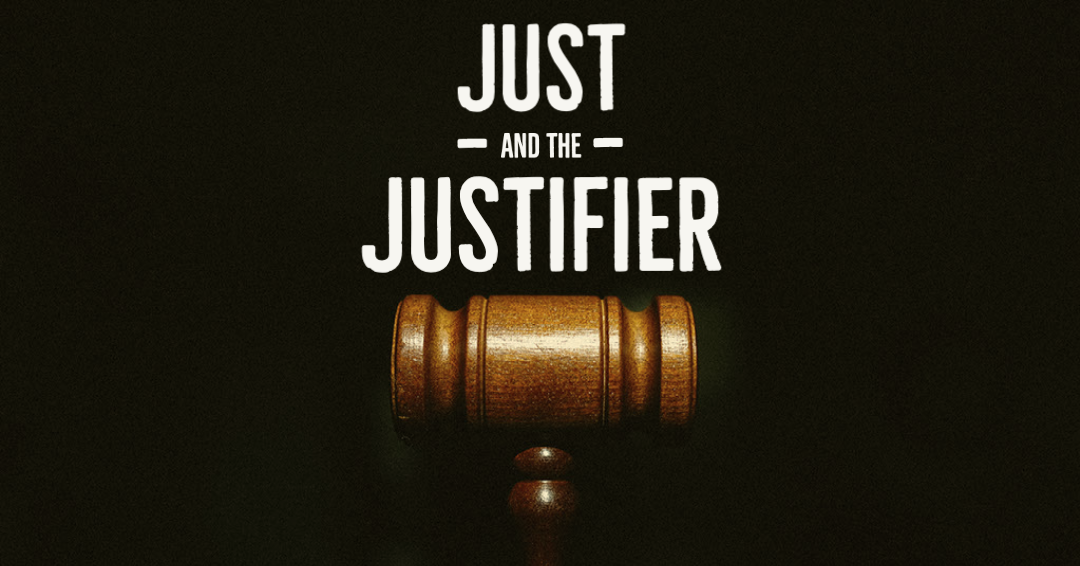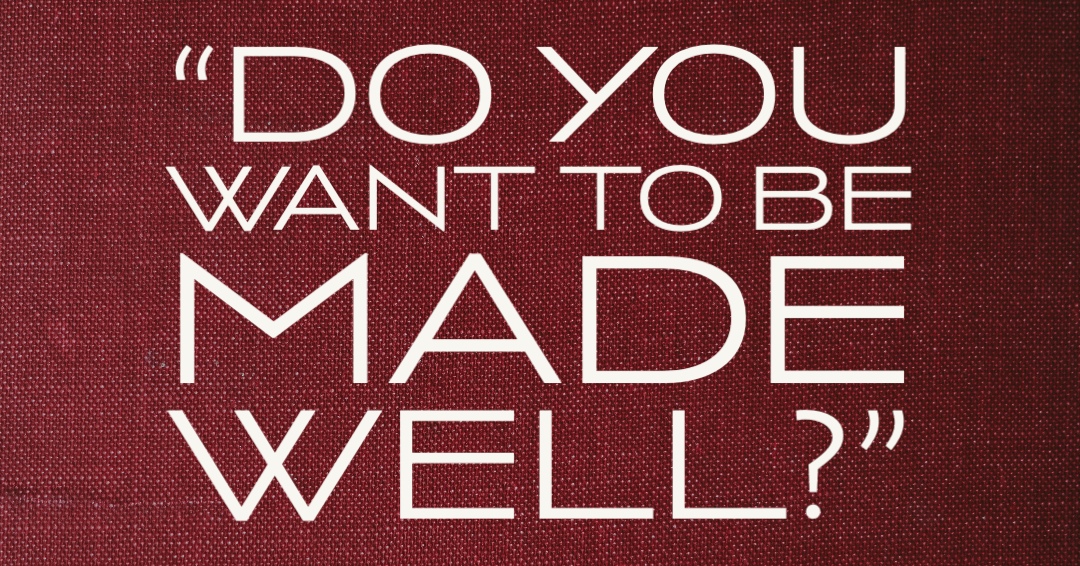Read the word.
Teach the word.
Preach the word.
- 1 Timothy 4:13
|
John Phillips said, “Under a system of works, everything depends on the sinner. Under grace everything depends on the Savior. Under the first, God gives a fair trial. But under the second God gives a free pardon.” Either everything depends on you & your works, or everything depends on God & His grace.
We explored God's amazing grace as we continued our study of the Apostle Paul's layered, ordered, and logical argument for God’s Righteousness At Christ’s Expense—given freely to anyone and everyone who simply and merely believes. Abraham believed God, and it was credited to him as righteousness.
–Genesis 15:6 Apart from Jesus Christ, Abraham is the most famous and widely known person mentioned in the Bible. He is given so much literary real estate throughout the scriptures—not just his life, but his faith in God. In fact, faith is the word that is most often associated with Abraham. It’s the very quality that is necessary to please God (Hebrews 11:6). It was the faith the Abraham obtained and implemented so much by him that he would be called God’s friend on three different occasions. But here’s the interesting thing about Abraham—there was nothing extraordinary about him. Even though Abraham was and is so highly regarded by so many, there was nothing uniquely special about him, as compared to others in scripture, like Moses, Joshua, David, Daniel, or Ezekiel. It’s his ordinariness that makes the life of faith accessible to everyone. He simply and merely believed God—and his belief was accounted to him as righteousness. It was this belief that gave him an everlasting hope–a hope that is an anchor for the soul. That faith and hope is accessible to us—right now! You may never be a great lawgiver like Moses, a smart military leader like Joshua, a brilliant king and psalmist like David, an incredible statesmen like Daniel, or one of the greatest prophets like Elijah—but you can be a person a faith like Abraham. You see, Abraham was just a man—and God met with him right where he was at. Not only that, God gave him His word and a covenant to conform His word. It was by these two immutable, unchanging, and eternal things that Abraham had every opportunity to believe in God and to believe God. We too have God’s word and His covenant so that we can believe Him. Like Abraham, the covenant God has made it one-sided. We have no contribution in it—only the opportunity to believe God. As the Apostle Paul continues his ordered and logical argument for God’s grace in his letter to the Romans, he looks back in history for an example of righteousness to which he can point. In his search, he looks beyond the prophets, beyond the kings of Israel and Judah, and beyond Moses. He finds the example he’s looking for in Abraham—the father of the faith.
It's faith, Paul tells us, that is the means through which we are justified. It's not by our works we are saved, or anything we can earn, but a gift of God that is received by faith (Ephesians 2:8). We see this faith that justifies throughout the life of Abraham. Just like the covenant that God made with Abraham, we have no contribution in the covenant He made with us through His son—we only have the opportunity to believe. Watch our study from Romans 4:1-3 as we considered the faith of Abraham and the righteousness God credited to him—and credits to us—through belief. The solution to the greatest quandary in all of history is found in Romans 3. How could God be a loving Heavenly Father and an absolutely righteous Judge at the same time? We are absolutely sunk unless God can solve this. And He did! Only in Jesus could God be absolutely just AND the justifier of those who have faith in Him.
Think of it this way: one day, an absolutely just judge has his son on the docket. His son is guilty and his punishment is a $50,000 fine or 5 years in jail. This judge has a reputation of being a just judge who gives everyone a fair trial. But for those who were guilty, he would deliver the maximum sentence allowable by law. Do you see the quandary? If he threw the book at his son, he would violate his character as a loving father. But if he was lenient in his judgment toward his son, he would violate his character as a righteous judge. The judge calls a recess to think things over. Everyone is wondering how will he solve this seemingly unsolvable situation. Once seated, he looks at his son, lifts his gavel, and delivers his verdict: “Guilty. Maximum sentence allowable by law.” But then the judge stands, removes his judicial robe, steps down from the judicial bench, walks over to the bailiff, and writes out a check for the full amount. He pays the full penalty himself and solves the quandary of being absolutely just and the justifier. This is what God did for us in and through Jesus—and so, so much more! He took off His royal robe, stepped down from His throne, lived an absolutely righteous life, and then died an absolutely horrible death in order to pay our penalty the maximum penalty allowable by His law in full. In doing so, God showed Himself to be an absolutely righteous judge AND a Father who forgives and paid our penalty Himself. God doesn’t grade on a sliding scale for His entrance exam into heaven. It’s only pass or fail—and in order to pass, you need to get 100% right, 100% of the time. If you’re wrong even once, you fail and fall short of God’s standard.
What is God’s standard? We can look at just ten of God’s commandments to test ourselves. Have you ever… …loved anything more than God? …given more devotion to something? …used God's name as cuss word? …worked all seven days in a week? …treated your parents poorly? …harbored hatred for someone? …looked on another with lust? …stolen—anything? …lied? …wanted something that wasn't yours? Well, how’d you do? Did you pass or fail? Remember, there’s no sliding scale. You either keep and fulfill God’s law completely your whole life, or you have broken God’s law at some point in your life. And if you have broken His law, you’re guilty. Religious rites, rituals, or ceremony cannot deal with that guilt. To say that any religious rite saves or even contributes one bit to your salvation is to say that Jesus’ sacrifice was insufficient. But there is hope! It’s not found in religion—it’s only found it Jesus. Only Jesus through His finished work on the cross saves. Come to Him and acknowledge that you have broken His perfect law. Be willing to turn from your sins, then believe that Jesus Christ died for you on the cross and rose from the grave. You can ask Jesus to become the Lord of your life by praying a prayer like this: Lord Jesus, I know that I am a sinner, and I ask for Your forgiveness. I believe You died for my sins and rose from the dead. I turn from my sins and invite You to come into my heart and life. I want to trust and follow You as my Lord and Savior. In Your Name, Amen. |
From Pastor Dom...When I first gave my life to Jesus, there were friends in my life who helped me to grow in my understanding of God, through His word, and for those friends Archives
July 2024
Categories
All
|
Strengthened by grace is the Bible Teaching ministry of Pastor Dominic Dinger.©2022 - All rights reserved.
|



 RSS Feed
RSS Feed